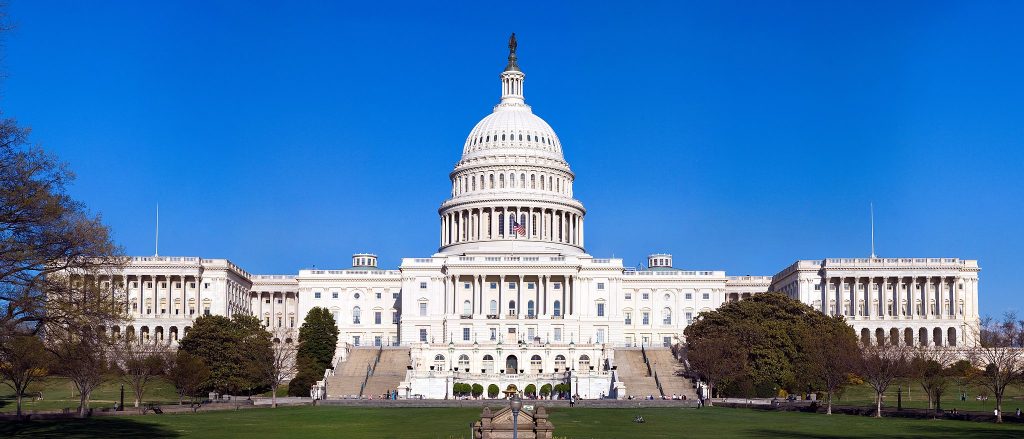Editor’s note: This article was updated on Dec. 8 to reflect the Virginia State Water Control Board’s approval of the Mountain Valley Pipeline’s water pollution permit and West Virginia’s decision to waive its authority to issue a permit for the Atlantic Coast Pipeline.
On Friday, Oct. 13, the Federal Energy Regulatory Commission approved the proposed Mountain Valley and Atlantic Coast pipelines.
FERC Commissioner Cheryl LaFleur, the lone non-Trump appointee of the five-person commission, dissented.
“Both the ACP and MVP cross hundreds of miles of karst terrain, thousands of waterbodies and many agricultural, residential and commercial areas,” LaFleur said in a statement. “I believe it is appropriate to balance the collective environmental impacts of these projects on the Appalachian region against the economic need for the projects. In so doing, I am not persuaded that both of these projects as proposed are in the public interest.”
As of Dec. 8, the Atlantic Coast Pipeline is still pending state water pollution permits from agencies in Virginia and North Carolina, while the Mountain Valley Pipeline has received the necessary permits.
In response to the FERC approval, on Oct. 24 the Board of Supervisors of Roanoke County, Va., petitioned FERC for a rehearing to more closely examine the Mountain Valley Pipeline’s impacts on water quality and historic and cultural resources. The 30-day deadline for FERC to respond could be extended indefinitely, during which construction could still begin on the pipelines.
The call for a rehearing escalated on Nov. 13 when a group of impacted landowners and environmental groups represented by Appalachian Mountain Advocates and the Southern Environmental Law Center filed an official rehearing request for the Atlantic Coast Pipeline with FERC. The group, which includes Appalachian Voices, the publisher of this newspaper, notes that FERC did not adequately review market demand for the pipeline and that most of the $5.5 billion project will be funded by ratepayers.
“Private property may only be taken, according to the Fifth Amendment to the United States Constitution, when the project is for a public use; an unnecessary pipeline is, by definition, not for a public use or benefit,” said Appalachian Mountain Advocates Senior Attorney Ben Luckett in a press release.
But since the FERC ruling legally declares the two pipelines in the public interest, the developers can now use eminent domain to obtain land. In early November, over 440 landowners in Virginia and West Virginia were sued by Mountain Valley Pipeline, LLC, to obtain easements for their land.
In North Carolina, the Department of Environmental Quality issued a letter of disapproval for the proposed Atlantic Coast Pipeline in October on the grounds that it did not meet the state’s requirements for erosion and sediment control. Atlantic Coast Pipeline, LLC, submitted new plans on Oct. 23, which the agency again disapproved on Nov. 6.
North Carolina regulators also requested additional information for the pipeline’s water pollution permit on Oct. 26 and for the stormwater permits on Nov. 8. The state’s next review is delayed until after new plans are submitted, potentially postponing its decision to 2018.
According to the Associated Press, audio from a September energy conference captured Dan Weekley, vice president of Atlantic Coast Pipeline developer Dominion Energy, telling industry insiders that “everybody knows” the pipeline won’t stop in North Carolina and would likely extend into South Carolina.
In West Virginia, Gov. Jim Justice’s administration waived its authority to review the water quality impacts of the Mountain Valley Pipeline, reissuing the stormwater pollution permit that was withdrawn in September after several environmental groups filed a lawsuit claiming that the pipeline had not been adequately reviewed. In December, the West Virginia Department of Environmental Protection also waived its authority issue a water quality permit for the Atlantic Coast Pipeline.
“We often hear from our political leaders that we don’t need federal agencies to regulate, that the state can handle it,” said West Virginia Rivers Coalition Executive Director Angie Rosser in a press release. “But waiving their authority to do so is no way to handle it.”
In October, a coalition of regional environmental groups sent a 17-page letter to the Virginia State Water Control Board stating that the Clean Water Act requires the state to reject the water pollution permits if “the Board lacks ‘reasonable assurance’ that water quality will be protected — including if it does not have the necessary information.”
The final public meeting dates for Virginia pipeline water quality permits were Dec. 6 and 7 for the Mountain Valley Pipeline and Dec. 11 and 12 for the Atlantic Coast Pipeline in Richmond. Visit appvoices.org/fracking/actions for more information about the remaining meeting
On Dec. 7, the Virginia State Water Control Board voted 5-2 to approve the permit for the Mountain Valley Pipeline. This followed a day of public comment from about approximately 85 landowners and experts opposed to the project and its impacts on state water quality.
“The record demonstrates that this project will ultimately violate the law. We are considering all options and expect the outcome will be determined in the courts,” Appalachian Voices Executive Director Tom Cormons said in a press statement. “If the company breaks ground on the project, citizens along the entire route are prepared to watchdog every action, along every mile, every day of construction and afterward, and compel agencies to act when violations inevitably occur.”
Related Articles
Latest News

Leave a comment
Your email address will not be published. Required fields are marked *
One response to “Pipelines Clear Hurdles, Face Resistance”
-
Land-grabbing by big business, without regard to the environment or the wishes of the individual.





Leave a Comment